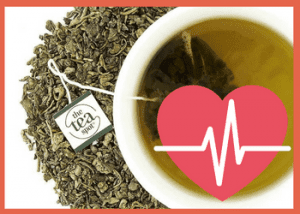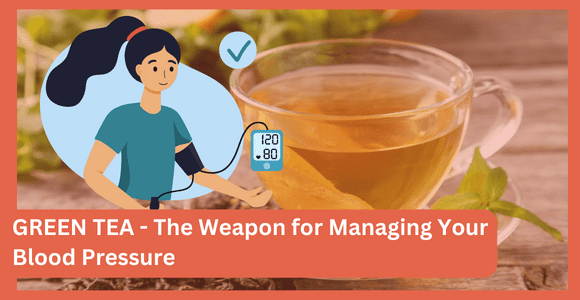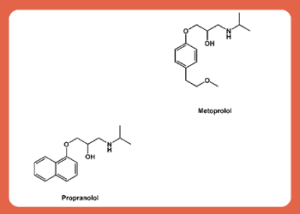Green tea, which is beloved around the world and has garnered acclaim for its various health benefits, may be particularly effective at helping to manage high blood pressure. This condition affects millions globally, yet sipping green tea could reduce this risk as well as cardiovascular disease.
Don’t let hypertension take a toll on your health. Regular consumption of green tea can help lower blood pressure and even prevent the onset of serious illnesses such as heart disease or stroke.
In this article, we’ll show you how effective green tea is in managing high blood pressure levels, making it an essential part of any wellness plan. Read more to discover why adding this delicious beverage to your daily routine could be beneficial for your overall well-being.
Table of Contents
Benefits of Tea for Blood Pressure
Studies have confirmed that the antioxidants found in tea can help relax your blood vessels and lower your blood pressure.
In fact, a meta-analysis revealed that consuming green or black tea regularly could lead to a reduction of up to 3.53 mmHg in systolic blood pressure (SBP) and 0.99 mmHg for those with diastolic blood pressure (DBP).
 Recent research has built upon the existing evidence that tea can reduce blood pressure levels. In particular, these scientists sought to uncover why this is the case.
Recent research has built upon the existing evidence that tea can reduce blood pressure levels. In particular, these scientists sought to uncover why this is the case.
A recent investigation pinpointed two particular compounds that influence a protein known as KCNQ5, which is present in the smooth muscle around blood vessels.
When stimulated by activating this type of protein, it causes your veins to relax and improve their capacity for circulation – subsequently decreasing one’s arterial pressure.
Not only does tea contain the powerful amino acid L-theanine, which has been shown to reduce blood pressure in those under stress and anxiety, but it also offers a calming ritual.
Taking time to pause and brew your favorite blend of tea before savoring each sip can have immense relaxing effects – an additional force that helps lower blood pressure.
Does Green Tea Increase Blood Pressure?
No, Numerous studies have indicated that consuming low- or no-caffeine green tea regularly can reduce your blood pressure and lessen your risk for cardiovascular diseases.
On the contrary, if you have high amounts of caffeine in your green tea (like matcha) consumption, there is the potential to experience an increase in one’s blood pressure levels.
Does Green Tea Lower Blood Pressure?
Yes, Studies demonstrate that individuals who drink decaffeinated or low-caffeine green tea on a regular basis experience remarkable decreases in both systolic and diastolic blood pressure levels. Daily consumption of 5-6 cups of green tea could result in reductions in systolic blood pressure.
Frequently Asked Questions
How Fast Does Green Tea Lower Blood Pressure?
Furthermore, early clinical studies have indicated that consuming green tea extract on a daily basis for 3 months or drinking it three times in 4 weeks can reduce hypertension levels in those with elevated blood pressure.
Can Too Much Green Tea Cause High Blood Pressure?
In comparison to consuming caffeine, those drinking green tea saw an elevation in systolic and diastolic blood pressure after 30 minutes, with 5.5 mmHg (95%CI -1.4 to 12.4) and 3.1 mmHg (95%CI -0.1 to 6.3), respectively; whereas black tea drinkers noticed a sharper increase at 10.7 mmHg (95%CI 4-17-4) for systolic pressure levels and 5-11mm Hg (95%-8.-44.) for diastolic readings on average
What Kind of Tea is Good for High Blood Pressure?
In search of a soothing yet effective remedy for high blood pressure? Chamomile, lavender, rose, and hibiscus teas are renowned for their capacity to reduce hypertension levels as well as promote overall heart health.
All you have to do is steep any of these in hot water for a few minutes before savoring its calming effects.
 Can I Drink Green Tea While Taking Blood Pressure Medication?
Can I Drink Green Tea While Taking Blood Pressure Medication?
Beta-blockers such as Propranolol and Metoprolol can cause a spike in blood pressure when taken alongside caffeine – even the small amounts found in green tea.
Therefore, it’s important to be aware of any potential interactions that may happen between your medication and other substances you consume.
Is Lipton Green Tea Good for High Blood Pressure?
Lipton may be beneficial for high blood pressure due to its polyphenol content, which has been shown to improve cardiovascular health. However, it is always best to consult with a healthcare professional for personalized advice on managing high blood pressure.
Conclusion
In conclusion, green tea has emerged as a promising weapon for managing high blood pressure and even weight loss. Its polyphenols, particularly catechins, have been shown to have blood pressure-lowering effects, making it an excellent addition to a healthy lifestyle.
However, it’s important to remember that green tea should not be used as a substitute for the medication and that consulting with a healthcare professional is crucial for developing a personalized blood pressure management plan.
With regular consumption and a holistic approach to health, green tea can be an effective tool in the fight against high blood pressure. So why not make it a part of your daily routine today?

 Can I Drink Green Tea While Taking Blood Pressure Medication?
Can I Drink Green Tea While Taking Blood Pressure Medication?